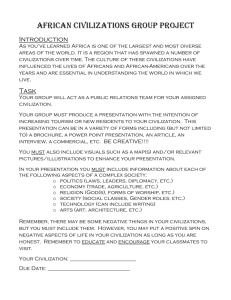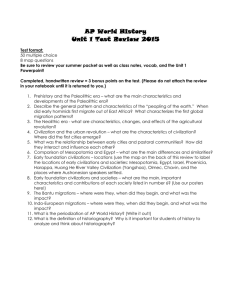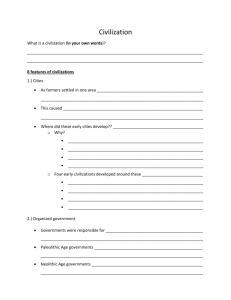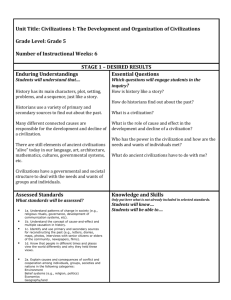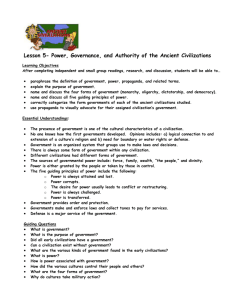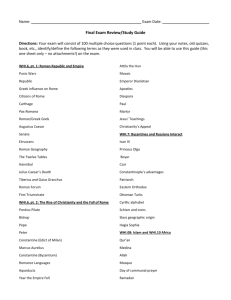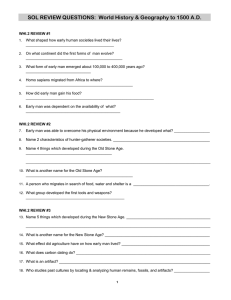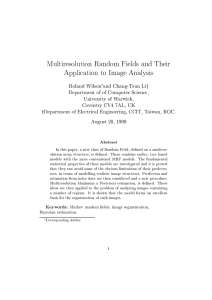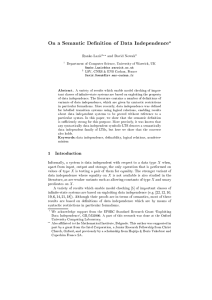Era III: Postclassical Civilizations, 300 to 1000 ad (ce)
advertisement
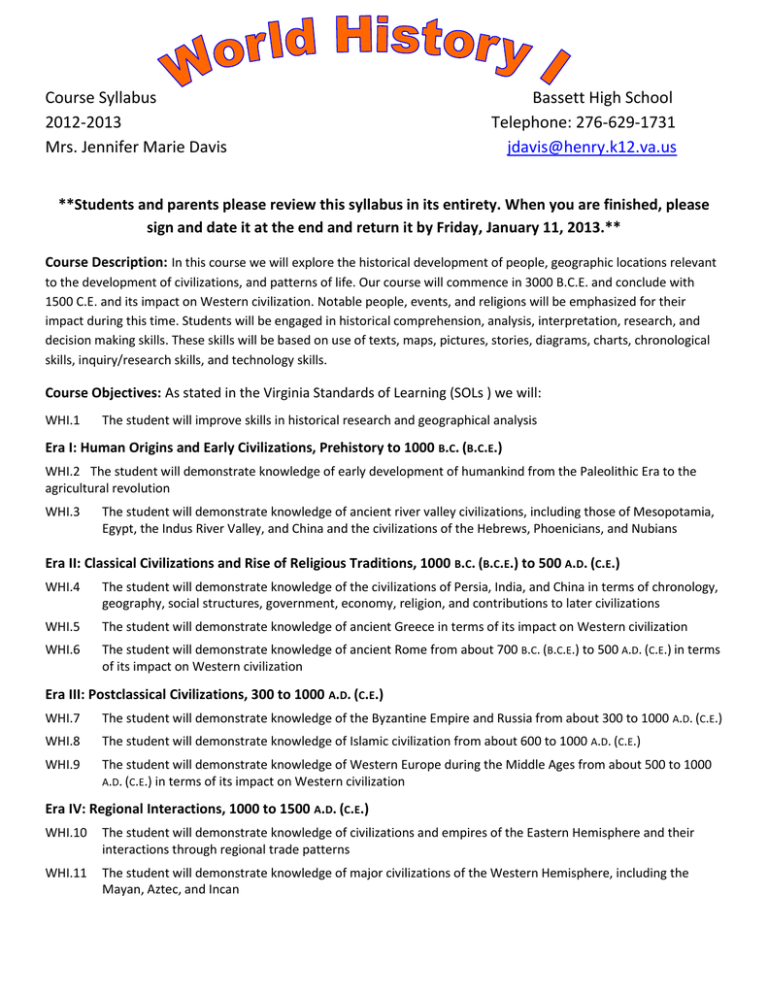
Course Syllabus 2012-2013 Mrs. Jennifer Marie Davis Bassett High School Telephone: 276-629-1731 jdavis@henry.k12.va.us **Students and parents please review this syllabus in its entirety. When you are finished, please sign and date it at the end and return it by Friday, January 11, 2013.** Course Description: In this course we will explore the historical development of people, geographic locations relevant to the development of civilizations, and patterns of life. Our course will commence in 3000 B.C.E. and conclude with 1500 C.E. and its impact on Western civilization. Notable people, events, and religions will be emphasized for their impact during this time. Students will be engaged in historical comprehension, analysis, interpretation, research, and decision making skills. These skills will be based on use of texts, maps, pictures, stories, diagrams, charts, chronological skills, inquiry/research skills, and technology skills. Course Objectives: As stated in the Virginia Standards of Learning (SOLs ) we will: WHI.1 The student will improve skills in historical research and geographical analysis Era I: Human Origins and Early Civilizations, Prehistory to 1000 B.C. (B.C.E.) WHI.2 The student will demonstrate knowledge of early development of humankind from the Paleolithic Era to the agricultural revolution WHI.3 The student will demonstrate knowledge of ancient river valley civilizations, including those of Mesopotamia, Egypt, the Indus River Valley, and China and the civilizations of the Hebrews, Phoenicians, and Nubians Era II: Classical Civilizations and Rise of Religious Traditions, 1000 B.C. (B.C.E.) to 500 A.D. (C.E.) WHI.4 The student will demonstrate knowledge of the civilizations of Persia, India, and China in terms of chronology, geography, social structures, government, economy, religion, and contributions to later civilizations WHI.5 The student will demonstrate knowledge of ancient Greece in terms of its impact on Western civilization WHI.6 The student will demonstrate knowledge of ancient Rome from about 700 B.C. (B.C.E.) to 500 A.D. (C.E.) in terms of its impact on Western civilization Era III: Postclassical Civilizations, 300 to 1000 A.D. (C.E.) WHI.7 The student will demonstrate knowledge of the Byzantine Empire and Russia from about 300 to 1000 A.D. (C.E.) WHI.8 The student will demonstrate knowledge of Islamic civilization from about 600 to 1000 A.D. (C.E.) WHI.9 The student will demonstrate knowledge of Western Europe during the Middle Ages from about 500 to 1000 A.D. (C.E.) in terms of its impact on Western civilization Era IV: Regional Interactions, 1000 to 1500 A.D. (C.E.) WHI.10 The student will demonstrate knowledge of civilizations and empires of the Eastern Hemisphere and their interactions through regional trade patterns WHI.11 The student will demonstrate knowledge of major civilizations of the Western Hemisphere, including the Mayan, Aztec, and Incan WHI.12 The student will demonstrate knowledge of social, economic, and political changes and cultural achievements in the late medieval period WHI.13 The student will demonstrate knowledge of developments leading to the Renaissance in Europe in terms of its impact on Western civilization **Based upon the following grading policy, it is crucial that students miss as little of class as possible in order to learn, succeed, and pass the SOL test for this course.** Quizzes: Students will periodically take announced and unannounced quizzes in class based upon the objectives and content that they are currently studying. In order to do well on the quizzes, students will need to keep up with reading assignments and the material we cover in class. It is suggested that students study material daily in order to do well. Quizzes will count as 10% towards each six weeks grade. Homework: Homework will only be given as a means of reinforcement of the material we are learning in class. All homework is to be turned in at the beginning of class to the black tray on Mrs. Davis’ desk, if it is not turned in by the time class starts it is considered late. Homework will count 15% towards each six weeks grade. Classwork: Students will be graded based on their efforts in class throughout the week; they may earn anywhere from 0-100. Classwork consists of any in-class assignments and/or activities that are based on that day’s SOL objective. Class work will count as 20% towards each six weeks grade. Tests: Students will be assessed at the end of each unit by taking a test. Tests will be based upon the objectives covered within a unit and students will be notified no later than one week in advance before a test is given; at this time a study guide will also be given to students. The final class before the test will consist of reviewing for that test. Tests will count as 25% towards each six weeks grade. Projects/Research Papers: As part of studying history, it is important to make connections by analyzing and reporting on what we’re learning inside and outside of the classroom. Students will have one major class project and/or research paper every six weeks period. Projects and research papers will each be based upon a specific time period that is based on the current unit. Projects and Research Papers will count as 30% towards each six weeks grade. Make-Up Work: As stated in the Student Code of Conduct, all make-up work must be completed within three (3) days of receiving the assignment. If work is due the day the student is out, then he/she must turn that work in the day they return to school! Late Work: Students will lose ten points everyday an assignment is not turned in, unless previously discussed with the teacher. Late assignments will no longer be taken after three days and a grade of a zero will ensue. Cheating/Honesty Policy: Everyone is expected to do his/her own work—in the case of finding a student cheating, the work will be taken up and a zero will be given to that student for that grade. By signing this syllabus you are agreeing that you will neither give nor receive aide on any assignment that involves individual work and you adhere to the consequences of those actions thereafter. This includes plagiarism, which will NOT be tolerated under any circumstances! Breakdown of Grades: Quizzes Homework Class work Tests Projects/Research Papers Grading Scale: 10% 15% 20% 25% 30% A B C D F 94-100 87-93 77-86 70-76 0-69 CLASS RULES: 1. 2. 3. 4. 5. 6. Follow the Student Code of Conduct. Manage yourself so you and others can learn. Respect yourself and others; this includes other people’s property, personal space, and feelings. Absolutely NO cell phones, ipods, mp3 players, etc. are allowed in class unless instructed by the teacher. Be in the room at the sound of the bell! Come with materials prepared to work and learn- I do not allow students to go back and forth to get any forgotten material. 7. NO food, drinks, and/or gum are allowed in the classroom EXCEPT bottled water that has a cap on it! 8. Always use appropriate language! *Failure to abide by these rules will be handled as designated in the Student Code of Conduct Handbook* Supplies: *1 ½ - 2” three ring binder *Loose-leaf paper *Blue or black ink pens AND #2 pencils *5 Dividers: RAPs, Vocab, Maps, Notes & Handouts, Quizzes & Tests *Coloring pencils *3 Prong Folder for SOL Review Material Textbook: Ancient World History: Patterns of Interaction. Austin, Texas: Holt McDougal, 2011. Final Note: I am EXCITED to be here, and I am looking forward to getting to know you better and along with your effort, I would like to make this your best year ever! As your teacher, I promise to put forth 110%, and always do my best! In return, I ask that you put forth the same amount of effort as well. Please know that you may come to me at any time with any questions or concerns. Again, I look forward to having a great 20122013 school year—let’s make this one to remember! Parents and students, by signing below you acknowledge that you have read this syllabus in its entirety and that you agree to abide by the previously stated grade set up, class rules, and honesty policy. Please note that I do retain the right to change the syllabus as necessary. Student Signature: ______________________________ Date:________ Parent Signature: _______________________________ Date: ________

